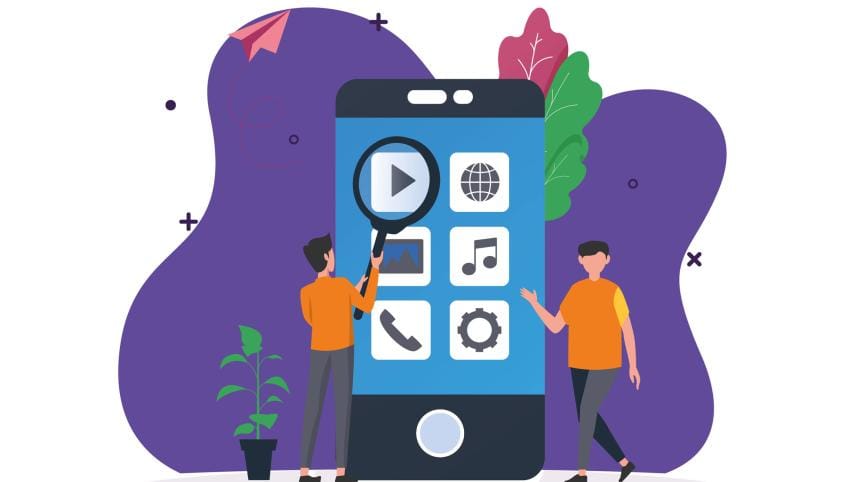The unstoppable rise of Bangladesh’s mobile app Market

As the app development sector flourishes, Bangladeshi apps are increasingly competing with global giants like Uber and Foodpanda in the country's market, offering localised solutions that resonate deeply with the local populace.
The foundations of growth
Bangladesh's app development industry has its roots in a robust educational framework, with around 42 public and private institutions offering degree programs in IT and computer science. Each year, approximately 3,000 students graduate from these programs, bolstering the ranks of a burgeoning tech workforce. Complementing this, numerous IT training centres, both domestic and international, enrol about 12,000 students annually, ensuring a steady pipeline of skilled developers ready to contribute to the sector's growth.
The country's low labour costs, high programmer productivity, and broad English literacy have further cemented its position as a key player in the global outsourcing market. According to the Oxford Internet Institute, Bangladesh is now the second-largest supplier of online outsourcing labour, surpassing even the United States, with around 500,000 active freelancers earning a combined total of $100 million per year.
Local champions: competing with global giants
Bangladeshi apps are not merely playing catch-up with their international counterparts; they are actively redefining the market with innovative and localised offerings. Take OBHAI, for instance. Launched in 2017, Obhai started with a third-party developer but soon transitioned to an in-house development team. Initially plagued by performance issues, the app underwent significant improvements and post-Covid-19 transitioned to a cashless payment system, a move that initially caused a dip in user numbers but eventually led to a resurgence as drivers appreciated the instant payment feature.
"Currently, we have a customer base of 4.5 million and 40,000 drivers combining CNG and car services," says Fazla Elahi, head of business at OBHAI. This impressive growth highlights how localised features can create a competitive edge, allowing Obhai to stand toe-to-toe with global players like Uber.
A thriving entertainment ecosystem
The entertainment sector in Bangladesh's app market is particularly vibrant, with platforms like Chorki, Hoichoi, and Bongo leading the charge. Chorki, for example, has quickly become a household name, offering a rich catalogue of local TV series and movies. Similarly, Bongo provides an extensive library of Bangladeshi content, enhancing the digital entertainment landscape.
However, it is Rabbithole BD that stands out for its focus on sports content. Launched in 2016, Rabbithole BD initially offered its services for free but switched to a subscription model during the 2019 Cricket World Cup. "We have over 10 million paid subscribers, with 500,000 being recurrent subscribers," says A.S.M Rafiq Ullah, CEO of Content Matters, the company behind Rabbithole BD. "Our app has been downloaded over 6 million times, and sports remain our primary focus. We are the legal distributor of international sports content in Bangladesh."
The e-commerce revolution
In the e-commerce sector, apps like Pickaboo, Rokomari, and Chaldal are making significant strides. Pickaboo specialises in electronics and gadgets, offering reliable delivery and exceptional customer service. "Currently, we have around 1.1 million active users. 55% of our total orders come from the app," shared Morin Talukder, CEO and Co-founder of Pickaboo.
Rokomari, a popular online bookstore, also deals in a variety of other products, including electronics and stationery, while Chaldal has revolutionised grocery shopping by providing a seamless online grocery delivery service.
Moreover, Sheba.xyz has emerged as a key player in the service sector, offering a wide range of services from home cleaning to car repairs. This diversity in offerings illustrates the broadening scope of the Bangladeshi app market, catering to an array of consumer needs and preferences.
Challenges and solutions
Despite its impressive growth, the Bangladeshi app market faces several challenges. Technical limitations such as outdated devices and inconsistent internet access in rural areas continue to pose significant obstacles. Security concerns also remain a pressing issue, particularly for financial and personal safety apps.
To address these challenges, developers are focusing on creating lightweight apps that function well on older devices and improving offline capabilities. Enhanced security protocols and user education on digital literacy are also being prioritised to build trust and ensure a safer user experience.
Global trends and Bangladesh's position
The global mobile app market was valued at $228.98 billion in 2023 and is expected to grow at a compound annual growth rate (CAGR) of 14.3% from 2024 to 2030. Consumer spending on apps reached $171 billion in 2023, with mobile ad spend hitting $362 billion. The Asia Pacific region, driven by increasing smartphone penetration and internet access, leads in app revenue share, followed by North America and Europe.
Within this global context, Bangladesh's app market is poised for continued growth. The country's strategic focus on digital transformation, coupled with a supportive government and an entrepreneurial spirit among its youth, positions it well to capitalise on the burgeoning app economy. As more local developers enter the fray, bringing with them innovative solutions tailored to the needs of Bangladeshi consumers, the market is set to expand even further.
How the industry can improve
Infrastructure development is critical. Investing in better internet infrastructure to ensure consistent connectivity across the country is crucial for expanding access to mobile apps in rural areas and supporting the overall digital economy.
Encouraging collaboration between app developers, government bodies, and private sector companies can also foster innovation and resource sharing. Collaborative efforts can drive growth, streamline regulatory processes, and enhance the overall quality of mobile apps.
User education is another important area. Educating users on digital literacy helps them make the most of available apps. This includes initiatives to improve understanding of app functionalities, security practices, and digital transactions. At the same time, making apps more relevant to Bangladeshi users, developers can build a stronger connection with the local audience and cater to their specific needs and preferences.
The road ahead
Looking ahead, the Bangladeshi app market holds immense potential. With ongoing improvements in infrastructure and a relentless drive towards digitalisation, the country is on track to become a significant player in the global app economy. By continuing to leverage its unique strengths—such as a young, educated workforce and a growing middle class—Bangladesh can further cement its position as a hub of innovation and growth in the mobile app sector.
The rise of Bangladesh's mobile app market is a testament to the country's adaptability and resilience. As local developers continue to innovate and compete with global giants, the future looks bright for this dynamic and rapidly evolving industry. With continued investment and support, Bangladesh's app market is set to achieve even greater heights, contributing significantly to the country's economic growth and digital transformation.





 For all latest news, follow The Daily Star's Google News channel.
For all latest news, follow The Daily Star's Google News channel.
Comments